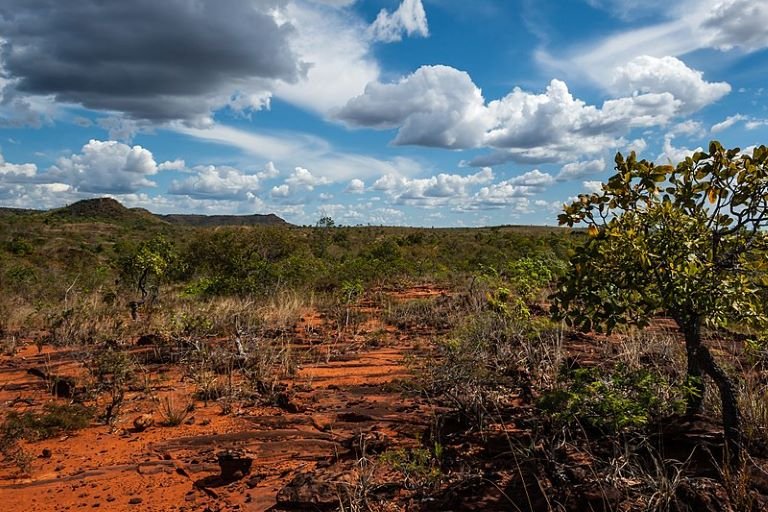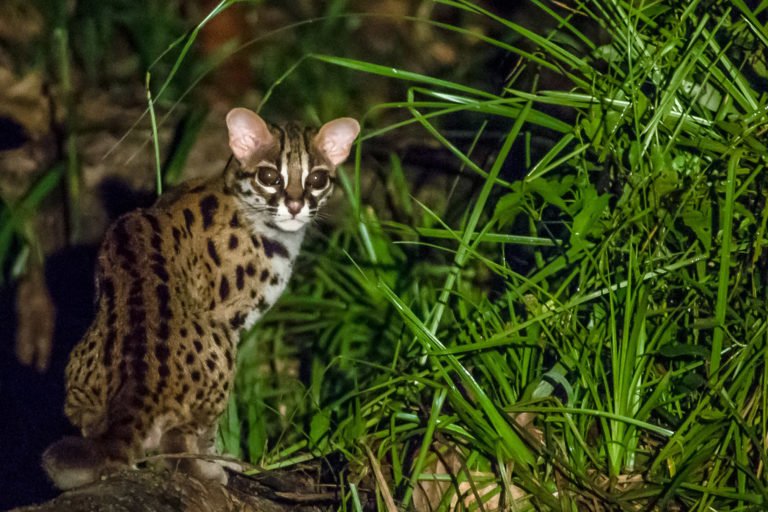- A $200 million loan was granted to Louis Dreyfus Company (LDC), an industrial soy and corn producer, for monoculture work in Brazil’s Cerrado, a grassland biome that has lost nearly 80% of its habitat cover.
- The loan was granted by the International Finance Corporation (IFC), a sister organization of the World Bank that’s tasked with private sector finance in developing countries.
- Corn, soy and cattle ranching have been connected to a long list of human rights violations, as well as the acceleration of deforestation and greenhouse gas emissions.
A major loan was approved this week for an industrial food producer operating in Brazil, despite outcries from conservation groups and international shareholders worried that the money would ultimately fund activities that contribute to deforestation.
The $200 million loan was granted to industrial agricultural producer Louis Dreyfus Company (LDC) for monoculture soy and corn production in Brazil’s Cerrado, a grassland biome that has lost nearly 80% of its habitat cover.
“This is going to perpetuate environmental destruction in Brazil,” Kari Hamerschlag, Deputy Director of Food and Agriculture at Friends of the Earth, told Mongabay. “This company doesn’t need development funds. The money should be going towards enterprises that truly promote equitable development.”
The loan will bolster LDC’s operations in Mato Grosso, Goias and Minas Gerais, three states that have already felt the negative impacts of industrial agriculture. Corn, soy and cattle ranching have been connected to a long list of human rights violations — including forced labor, land grabbing and violence against Indigenous and traditional communities — while accelerating deforestation and greenhouse gas emission rates.
The most recent example of LDC controversy involves a report released last week from Reporter Brasil, which found that one of LDC’s suppliers, Agrícola Xingu, has been responsible for furthering land conflicts in western Bahia and deforesting more than 32,100 hectares (79,320 acres) in the Cerrado. Conservation groups are worried that the loan will result in similar problems.
“This project fails to take into account the concerns of locally affected community members and stakeholders, in a region troubled with land conflicts and significant environmental, human health, and labor rights concerns,” said a May 31 letter protesting the loan, which was signed by over 235 civil society and conservation organizations across the globe.
But LDC maintains that the loan will be sustainably responsible. The company recently announced its commitment to eliminate deforestation and the conversion of native vegetation for agricultural purposes by 2025. Operations funded by the loan are supposed to adhere to a “soy sustainability” policy, in which the company is obligated to collaborate with shareholders to ensure the soy supply chain isn’t contributing to deforestation, according to the loan disclosure.
Work funded by the loan will economically benefit farmers, the disclosure said, while providing them incentives to work towards zero-deforestation and conservation goals.
“LDC operates in strict compliance with all applicable laws and regulations globally, in line with our unwavering commitment to operate safely, reliably and safeguarding our planet’s finite resources,” it said in a statement to Mongabay.
The loan was granted by the International Finance Corporation (IFC), a sister organization of the World Bank that’s tasked with private sector finance in developing countries. The corporation, like many multilateral development banks, has pledged to align its activity with the Paris Climate Agreement by 2023.
However, it has continued to invest in global industrial agriculture with connections to deforestation and human rights violations. Over the last decade, it has granted over $2 billion in loans to these sectors.
“We combine investments and advisory services to help the sector address higher demand and escalating food prices in an environmentally sustainable and socially inclusive way,” an IFC spokesman told Mongabay in an email. “The proposed project with LDC will support a portfolio of eligible soy and corn farmers in Brazil that are committed to zero deforestation and conversion of native vegetation.”

The loan was voted on Tuesday by the executive directors of the IFC, each of whom represent one or more countries with a stake in the World Bank. The vote count wasn’t immediately available following the announcement of the results.
The United States is a 20% shareholder of the World Bank, the largest of any country. A representative for the country declined a request for comment. Several other countries referred Mongabay to an IFC spokesperson.
Friends of the Earth and other civil society organizations wrote to and met with several executive directors ahead of the vote, trying to convince them to postpone the loan’s approval until more thorough environmental impact studies could be carried out. The groups claim that IFC is not following its “performance standard” policies in preparing the loan.
The strategy of writing to and meeting with shareholders looked promising weeks ahead of the vote. A similar approach was successful earlier this year, when the Inter-American Development Bank was pressured into permanently shelving a $200 million loan to Marfrig Global Foods, a Brazilian beef giant accused of furthering deforestation in the Amazon.
This time, while many executive directors expressed concern about the environmental and human rights implications of the IFC loan behind closed doors, it ultimately wasn’t enough to change the outcome. Three chairs — the Dutch, Nordic and Chinese — reportedly abstained on the vote. No office objected, according to Friends of the Earth.
“I am deeply disappointed that the U.S. government, the IFC’s largest shareholder, voted to approve this terrible loan and did not do more to hold IFC management accountable for upholding their own policies and mandates,” Hamerschlag said.
Banner image: A panorama of the Brazilian Cerrado. Photo courtesy of Wikimedia.
FEEDBACK: Use this form to send a message to the author of this post. If you want to post a public comment, you can do that at the bottom of the page.












